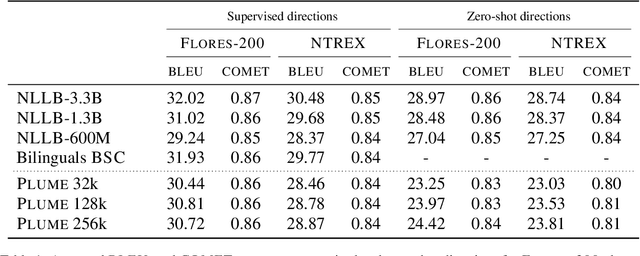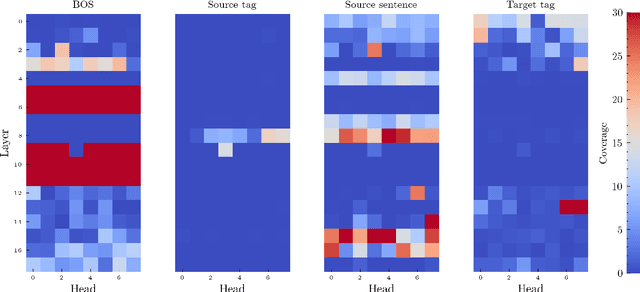Francesca De Luca Fornaciari
ACADATA: Parallel Dataset of Academic Data for Machine Translation
Oct 14, 2025



Abstract:We present ACADATA, a high-quality parallel dataset for academic translation, that consists of two subsets: ACAD-TRAIN, which contains approximately 1.5 million author-generated paragraph pairs across 96 language directions and ACAD-BENCH, a curated evaluation set of almost 6,000 translations covering 12 directions. To validate its utility, we fine-tune two Large Language Models (LLMs) on ACAD-TRAIN and benchmark them on ACAD-BENCH against specialized machine-translation systems, general-purpose, open-weight LLMs, and several large-scale proprietary models. Experimental results demonstrate that fine-tuning on ACAD-TRAIN leads to improvements in academic translation quality by +6.1 and +12.4 d-BLEU points on average for 7B and 2B models respectively, while also improving long-context translation in a general domain by up to 24.9% when translating out of English. The fine-tuned top-performing model surpasses the best propietary and open-weight models on academic translation domain. By releasing ACAD-TRAIN, ACAD-BENCH and the fine-tuned models, we provide the community with a valuable resource to advance research in academic domain and long-context translation.
The power of Prompts: Evaluating and Mitigating Gender Bias in MT with LLMs
Jul 26, 2024Abstract:This paper studies gender bias in machine translation through the lens of Large Language Models (LLMs). Four widely-used test sets are employed to benchmark various base LLMs, comparing their translation quality and gender bias against state-of-the-art Neural Machine Translation (NMT) models for English to Catalan (En $\rightarrow$ Ca) and English to Spanish (En $\rightarrow$ Es) translation directions. Our findings reveal pervasive gender bias across all models, with base LLMs exhibiting a higher degree of bias compared to NMT models. To combat this bias, we explore prompting engineering techniques applied to an instruction-tuned LLM. We identify a prompt structure that significantly reduces gender bias by up to 12% on the WinoMT evaluation dataset compared to more straightforward prompts. These results significantly reduce the gender bias accuracy gap between LLMs and traditional NMT systems.
Investigating the translation capabilities of Large Language Models trained on parallel data only
Jun 13, 2024



Abstract:In recent years, Large Language Models (LLMs) have demonstrated exceptional proficiency across a broad spectrum of Natural Language Processing (NLP) tasks, including Machine Translation. However, previous methods predominantly relied on iterative processes such as instruction fine-tuning or continual pre-training, leaving unexplored the challenges of training LLMs solely on parallel data. In this work, we introduce PLUME (Parallel Language Model), a collection of three 2B LLMs featuring varying vocabulary sizes (32k, 128k, and 256k) trained exclusively on Catalan-centric parallel examples. These models perform comparably to previous encoder-decoder architectures on 16 supervised translation directions and 56 zero-shot ones. Utilizing this set of models, we conduct a thorough investigation into the translation capabilities of LLMs, probing their performance, the impact of the different elements of the prompt, and their cross-lingual representation space.
A Hard Nut to Crack: Idiom Detection with Conversational Large Language Models
May 17, 2024Abstract:In this work, we explore idiomatic language processing with Large Language Models (LLMs). We introduce the Idiomatic language Test Suite IdioTS, a new dataset of difficult examples specifically designed by language experts to assess the capabilities of LLMs to process figurative language at sentence level. We propose a comprehensive evaluation methodology based on an idiom detection task, where LLMs are prompted with detecting an idiomatic expression in a given English sentence. We present a thorough automatic and manual evaluation of the results and an extensive error analysis.
 Add to Chrome
Add to Chrome Add to Firefox
Add to Firefox Add to Edge
Add to Edge